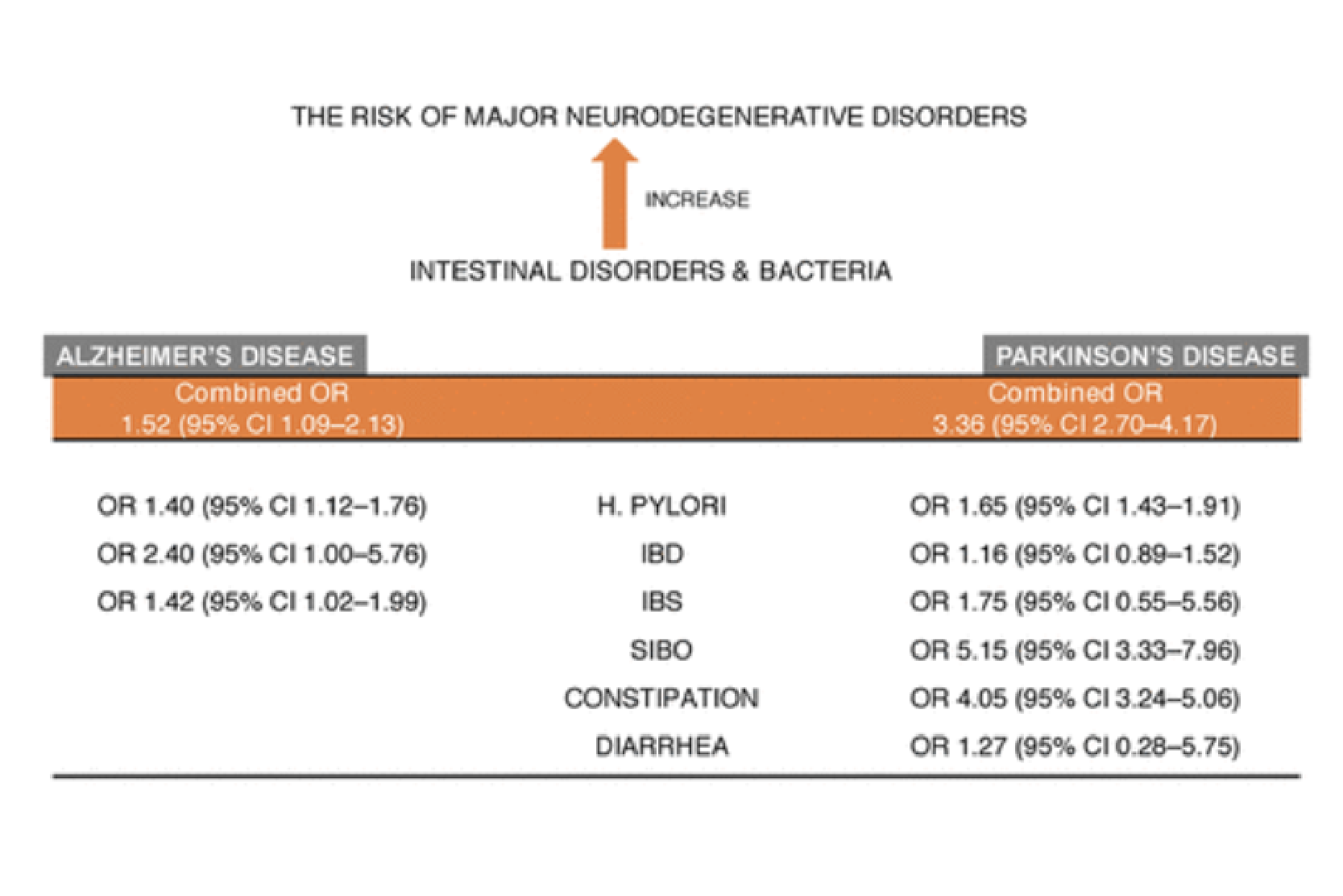Research News
Association of Intestinal Disorders with Parkinson’s Disease and Alzheimer’s Disease: A Systematic Review and Meta-Analysis
Fu, Pengfei, Gao, Meng, Yung, Ken Kin Lam


Abstract
Parkinson’s disease (PD) and Alzheimer’s disease (AD) are the most common neurodegenerative disorders, with an overall global incidence of 40 million. Many studies have revealed the association of intestinal disorders and bacterial infections with PD, but few studies have found such a relationship with AD. In this meta-analysis, related articles published up to September 2018 were searched in PubMed. Of the 2121 related articles screened initially, 56 were found to be eligible. Data on the risks of PD and AD due to five intestinal disorders and infection with Helicobacter pylori, as a representative intestinal microbe, were obtained, and a fixed- or random-effects model was used to pool the odds ratios (ORs) with 95% confidence interval (CIs) from individual studies. The combined OR for all types of intestinal disorders with an increased risk of PD was 3.36 (95% CI: 2.70–4.17). The ORs for each category were as follows: constipation, 4.05 (95% CI, 3.24–5.06); inflammatory bowel disease (IBD), 1.16 (95% CI, 0.89–1.52); irritable bowel syndrome (IBS), 1.75 (95% CI, 0.55–5.56); small intestinal bacterial overgrowth, 5.15 (95% CI, 3.33–7.96); and diarrhea, 1.27 (95% CI, 0.28–5.75). The combined OR of all types of intestinal disorders with an increased risk of AD was 1.52 (95% CI, 1.09–2.13). The ORs for IBS and IBD were 1.42 (95% CI, 1.02–1.99) and 2.40 (95% CI, 1.00–5.76), respectively. The risk estimates of H. pylori infection in PD and AD patients were as follows: OR, 1.65 (95% CI, 1.43–1.91) and OR, 1.40 (95% CI, 1.12–1.76), respectively. These findings suggest that PD and AD are significantly associated with intestinal disorders. The negative roles of H. pylori in the development of PD or AD should be evaluated to shed new light on the diagnosis and treatment of PD and AD. National governments should periodically inspect the intestinal condition of residents and extend health plans to improve intestinal health to prevent potential neurological disorders.